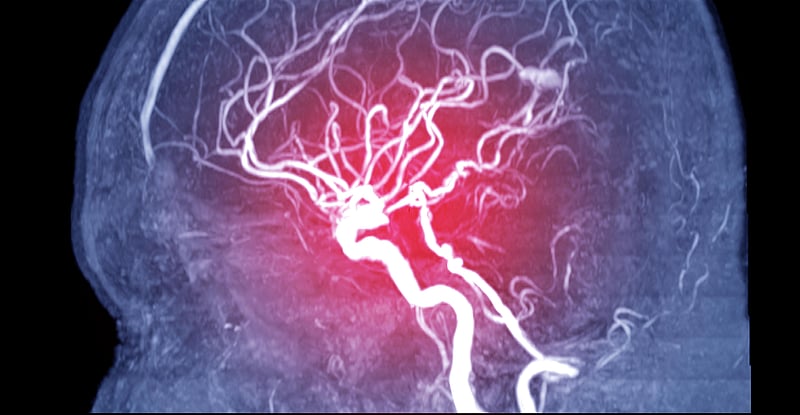Get Healthy!

- Robert Preidt
- Posted April 20, 2022
Mesh Plug a New Option for Treating Tricky Aneurysms
A mesh plug normally used to treat one type of brain aneurysm is also effective when dealing with another type, a new study says.
Aneurysms are bulges in blood vessels that can cause a life-threatening rupture. They typically occur where a blood vessel forks into two branches (bifurcates), but can also occur on the side of a blood vessel.
The study found that a device called a Woven EndoBridge (WEB) is equally effective for both types of aneurysms.
A common treatment is the placement of tiny platinum coils into the aneurysm, but that has limitations, according to the authors of the study.
The report was published April 19 in the journal Radiology.
"If the aneurysm has a wide neck, the coil might fall into the blood vessel and lead to clot formation and incomplete aneurysm occlusion," lead author Dr. Nimer Adeeb said in a journal news release.
"Many times, you end up putting a stent in the blood vessel to prevent the coils from falling out and to keep them compacted within the aneurysm. This can have its own complications and requires using blood thinners," said Adeeb, who is in the department of neurosurgery and interventional neuroradiology at Louisiana State University, in Shreveport.
The WEB device was developed to overcome those limitations. It's placed inside the aneurysm, causing a clot to form. This closes off the aneurysm and reduces the risk of bleeding without the need for stents or blood thinners.
The WEB device is approved by the U.S. Food and Drug Administration for wide-neck intracranial bifurcation aneurysms, but some specialists use it off-label for the treatment of aneurysms that occur on the side of a blood vessel.
For this study, Adeeb and his colleagues analyzed more than 10 years of data from a group of 23 academic institutions in North America, South America, Australia and Europe.
The WEB device was used in 572 patients with bifurcation aneurysms and in 111 patients with sidewall aneurysms. After accounting for differences in patients, the researchers compared 91 bifurcation and sidewall aneurysms pairs.
"We found out that there is no significant difference using the WEB device in sidewall aneurysms compared with bifurcation aneurysms," Adeeb said. "The results show that the WEB device is safe and effective to use for sidewall aneurysms."
Adeeb said he hoped the findings will trigger discussions about expanding the indications for the use of the WEB device to include certain sidewall aneurysms.
About 6.5 million Americans have an unruptured brain aneurysm, according to the Brain Aneurysm Foundation.
More information
The American Stroke Association has more on brain aneurysms.
SOURCE: Radiology, news release, April 19, 2022







